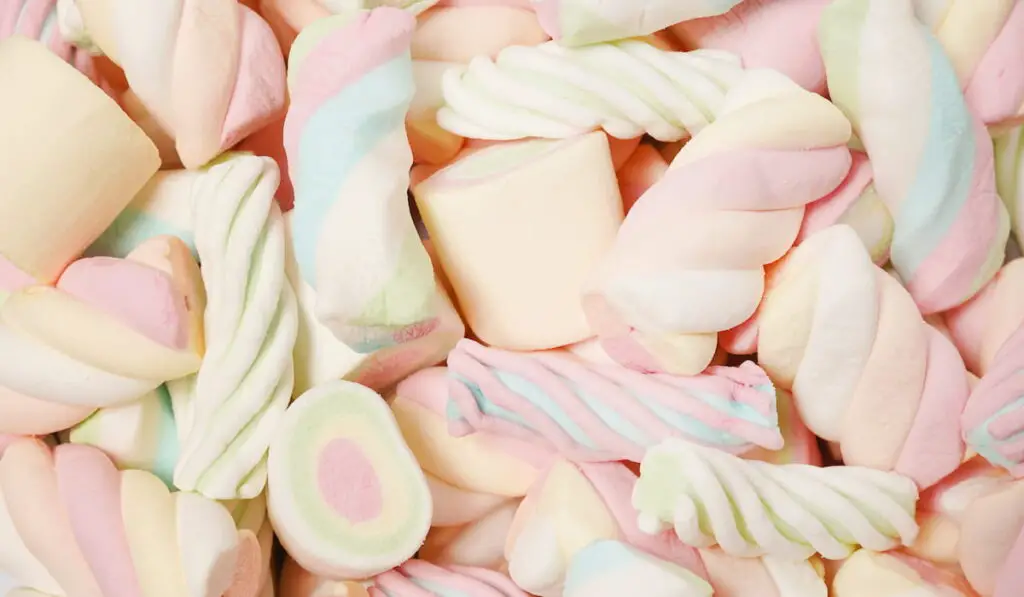Horses should not eat marshmallows as they are high in sugar and may lead to digestive issues. Horses should not be fed marshmallows due to their high sugar content, which can cause digestive problems.
It is important to be mindful of what horses consume to ensure their overall health and well-being. Instead of marshmallows, horses should be fed a diet that consists primarily of forage such as hay or pasture grass, along with a balanced mix of grains and supplements as recommended by a veterinarian or equine nutritionist.
Providing horses with a proper diet helps maintain their digestive system and supports their overall nutrition.
Are Marshmallows Safe For Horses?
The consumption of marshmallows by horses can be a topic of concern for horse owners. To fully understand whether it is safe or not, it is essential to examine the composition and ingredients of marshmallows along with the digestive system and nutritional needs of horses.
| Marshmallow Composition | Horse Digestive System | Nutritional Needs |
|---|---|---|
| Marshmallows primarily consist of sugar, corn syrup, gelatin, and water. | The equine digestive system is designed to efficiently process a high-fiber diet, primarily consisting of forages. | Horses require a balanced diet rich in fiber, vitamins, minerals, and a consistent source of good-quality forage. |
While it may be tempting to share a marshmallow with your horse as a treat, it is important to bear in mind that their digestive system is not adapted to process sugary and low-fiber foods like marshmallows. Regular consumption of such products can lead to imbalances and digestive disorders. Therefore, it is generally recommended to provide horses with treats specifically designed for their nutritional needs.
The Risks Of Feeding Marshmallows To Horses
Feeding marshmallows to horses can pose several risks to their health. One important consideration is the sugar content in marshmallows. These sweet treats contain high levels of sugar, which can lead to potential health issues for horses.
Ingesting excessive amounts of sugar can contribute to obesity and insulin resistance in horses. This can increase the risk of developing metabolic disorders such as laminitis. Horses with metabolic issues should avoid foods with high sugar content, including marshmallows.
Another risk associated with feeding marshmallows to horses is the potential for choking hazard. Marshmallows can be difficult to swallow and may cause an obstruction in the horse’s digestive tract. This can lead to digestive blockage and may require veterinary intervention to resolve.
Given these risks, it is best to avoid feeding marshmallows to horses altogether. Instead, focus on providing a balanced diet that meets their nutritional needs without the added risks associated with sugary treats.
Alternative Treats For Horses
When it comes to providing treats for horses, it’s important to choose options that are healthy and horse-friendly. While marshmallows may be a tasty treat for humans, they are not suitable for horses. Instead, consider alternative treats that offer nutritional benefits.
- Carrots: These crunchy vegetables are a favorite amongst horses and provide a good source of vitamins and minerals, such as vitamin A and beta-carotene.
- Apples: Horses love the sweet taste of apples, and these fruits are packed with fiber and vitamin C.
- Peppermints: A popular choice, peppermints are a safe and enjoyable treat for horses. Just be sure to feed them in moderation, as too many can be high in sugar.
- Oats: While not a traditional treat, oats are a nutritious option that can be used as a reward during training sessions.
By choosing natural options like carrots and apples, you can provide your horse with a healthy and tasty treat that they will enjoy.

Credit: www.barnesandnoble.com
Frequently Asked Questions Of Can Horses Eat Marshmallows
Can Horses Eat Marshmallows?
Horses should not eat marshmallows as they are unhealthy for them. Marshmallows are high in sugar and do not provide any nutritional value for horses. Feeding marshmallows to horses can lead to weight gain, dental issues, and digestive problems. It is best to stick to a balanced diet of hay, grains, and supplements specifically designed for horses.
Conclusion
It’s best to avoid feeding horses marshmallows due to their high sugar content and potential health risks. While horses may be curious about these sweet treats, it’s crucial to prioritize their nutritional needs and stick to their natural diet. Instead, offer them safe and appropriate treats approved by equine professionals to ensure their well-being.
Remember, keeping our four-legged friends healthy should always be our top priority.

